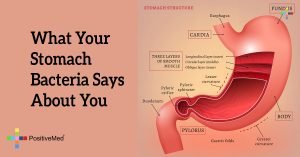
The Supplement That May Help Your Digestive Issues
[nextpage title=”…”]
Digestive enzymes are proteins that are normally produced by the pancreas and then delivered to the saliva, the stomach, and the intestines. These enzymes work to break down the nutrients in the food we eat so that they can be absorbed into the bloodstream. The enzymes are classified based on what types of nutrients they break down (proteins, fats, carbohydrates, or nucleic acids). Without digestive enzymes, the body can’t break down or digest food. Because of the importance of these enzymes, the body has multiple systems for producing and maintaining them, but deficiencies can still occur.

If you have insufficient digestive enzymes, you may experience gas, bloating, feeling full after only a few bites of food, and abnormal stools. More serious symptoms can include weight loss, anemia, malnutrition, or signs of vitamin deficiency. If you have these symptoms, you may want to try changing your diet, as well. Start by avoiding fried or greasy foods, excessive coffee or alcohol, high amounts of sugar, and processed foods with preservatives and additives. Raw foods, or foods that are lightly cooked, can be easier to digest. Depending on your body, you may need to tailor your diet and supplement regime to fit your needs, and possibly change them over time. If you’re following a high fiber diet (such as a vegetarian or vegan plan), digestive enzymes can help with the occasional flatulence without a dramatic diet change.
There is controversy in the medical field about whether digestive enzymes are beneficial for everyone, but there are certain situations where the benefits of supplements are recognized:
1. Your body is under stress. If your body goes into “fight or flight” mode, food digestion temporarily goes to the back burner. This can be emotional stress affecting your body, or some sort of gastrointestinal illness causing physical stress.
2. Your intestines are damaged. The intestinal lining can be damaged by diseases like Celiac or Crohn’s, or drug use (either illegal or legal).
[/nextpage] [nextpage title=”…”]
3. You have a pancreatic deficiency. Since the pancreas makes digestive enzymes, if it isn’t functioning correctly, you will need supplemental enzymes. Pancreatic deficiency can be caused by cystic fibrosis, pancreatitis, or pancreatic surgery.
4. You have food allergies or intolerances. A well-studied example of food intolerance and the benefit of supplemental enzymes is lactose intolerance. If someone is lactose intolerant, their body is not producing the specific digestive enzyme used to break down milk sugars, and eating dairy will make them sick. Taking the lactase enzyme will break down the milk for their body. Likewise, food allergies can cause inflammation in the gut, and may inhibit the release of enzymes by the body.
RELATED ARTICLE: This Miracle “Soda” Will Improve Your Digestion And Soothe Pain
5. You have nutrient deficiencies. Things like malnutrition, vitamin deficiencies, and leaky gut can cause the entire digestive system to stop working correctly. While taking supplemental enzymes may help, treating the cause is also important (for example by also taking a vitamin supplement).
6. You’re aging. As the body ages, the organs stop working as effectively. This can lead to vitamin deficiencies, decreased organ function, and incomplete food digestion.
The people most at risk for digestive enzyme deficiency are people over 40, people with pancreatic disorders, people with celiac disease or multiple food allergies, and people who have other stress related conditions. But even if none of these apply to you, you may end up needing supplemental enzymes temporarily or permanently. For example, the changes in the body during pregnancy may require the temporary use of digestive enzymes to counteract the symptoms until after delivery.
As with any supplement or diet change, it is important to talk with your healthcare provider first. The symptoms of enzyme deficiency can mimic those of other conditions and diseases such as food poisoning, gallstones, intestinal obstructions, or morning sickness, and it’s important to have the correct diagnosis before treating it.
[/nextpage]






